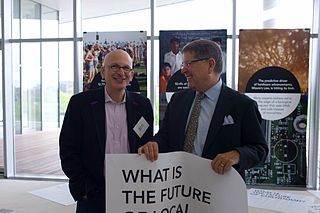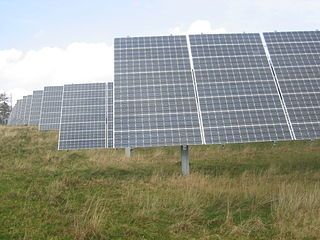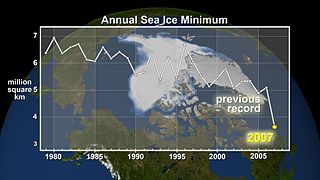Is Europe Wasting a Fortune with the Poor Siting of Clean Energy Projects?

No one likes to waste money, especially not tens of billions of Euros. But this is tricky business for several reasons, like the opportunity cost of waiting while various forces argue the merits of different alternatives. This, btw, is exactly what the Nature Conservancy wants to do here in the U.S., i.e., take as long as required to find the perfect spot for solar panels – one that has exactly zero impact on natural systems.
In case it’s not obvious, I believe that there is a real cost to this behavior, and that making a few compromises in the name of expediting the build-up of renewables is acceptable.

 It’s hard to know what to make of this week’s
It’s hard to know what to make of this week’s  Considering I was a marketing guy for the fat part of my career, it may be a bit strange that I don’t closely follow the writings of Seth Godin (on left in photo), certainly one of the biggest names in marketing over the past 20 years. I did, however, come across
Considering I was a marketing guy for the fat part of my career, it may be a bit strange that I don’t closely follow the writings of Seth Godin (on left in photo), certainly one of the biggest names in marketing over the past 20 years. I did, however, come across  Kenny Hearn from South Africa writes:
Kenny Hearn from South Africa writes: I mentioned earlier that I’m on my way to Portland, OR for the day, and I happen to be flying on Alaska Airlines. I just leafed through the in-flight magazine, expecting to see plenty of ads for arctic cruises and fishing expeditions, photos of bears, and other enticements to come to the destinations the airline serves. Yes, there was plenty of all that.
I mentioned earlier that I’m on my way to Portland, OR for the day, and I happen to be flying on Alaska Airlines. I just leafed through the in-flight magazine, expecting to see plenty of ads for arctic cruises and fishing expeditions, photos of bears, and other enticements to come to the destinations the airline serves. Yes, there was plenty of all that. I’m on my way to Portland, OR this morning to do a marketing needs assessment for
I’m on my way to Portland, OR this morning to do a marketing needs assessment for  Renewable Energy World does a good job at tracking the adoption of clean energy at all levels, including continental. Here’s an
Renewable Energy World does a good job at tracking the adoption of clean energy at all levels, including continental. Here’s an  Here’s a very accessible
Here’s a very accessible  Alternative energy is big. It’s an important field of study and it’s a great way to help us lower our carbon footprint. Why, exactly, is this important? Currently, we are starting to run out of a lot of our natural resources. On top of that, humans are having a harsh impact on the planet. However, with some of the biggest breakthroughs in alternative energy, we may be able to ensure that energy sources in the future are renewable sources of power.
Alternative energy is big. It’s an important field of study and it’s a great way to help us lower our carbon footprint. Why, exactly, is this important? Currently, we are starting to run out of a lot of our natural resources. On top of that, humans are having a harsh impact on the planet. However, with some of the biggest breakthroughs in alternative energy, we may be able to ensure that energy sources in the future are renewable sources of power. I just had a long and interesting conversation with a woman in Columbia who will be doing a bit of volunteer writing for us here; I’m certainly looking forward to reading her stuff.
I just had a long and interesting conversation with a woman in Columbia who will be doing a bit of volunteer writing for us here; I’m certainly looking forward to reading her stuff.